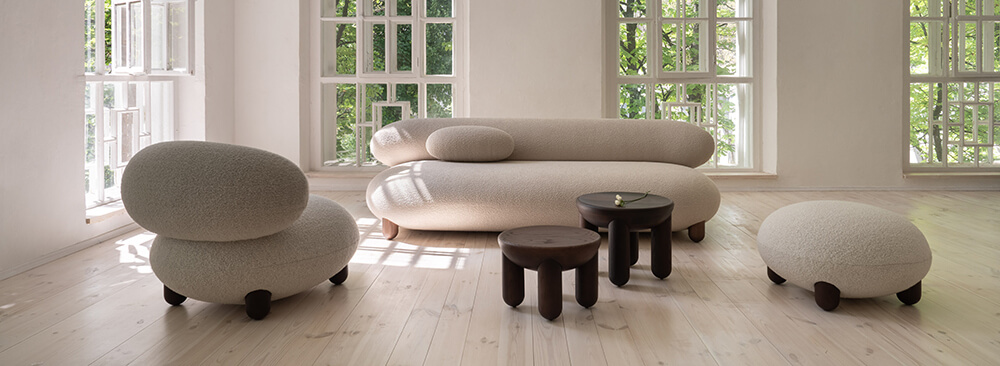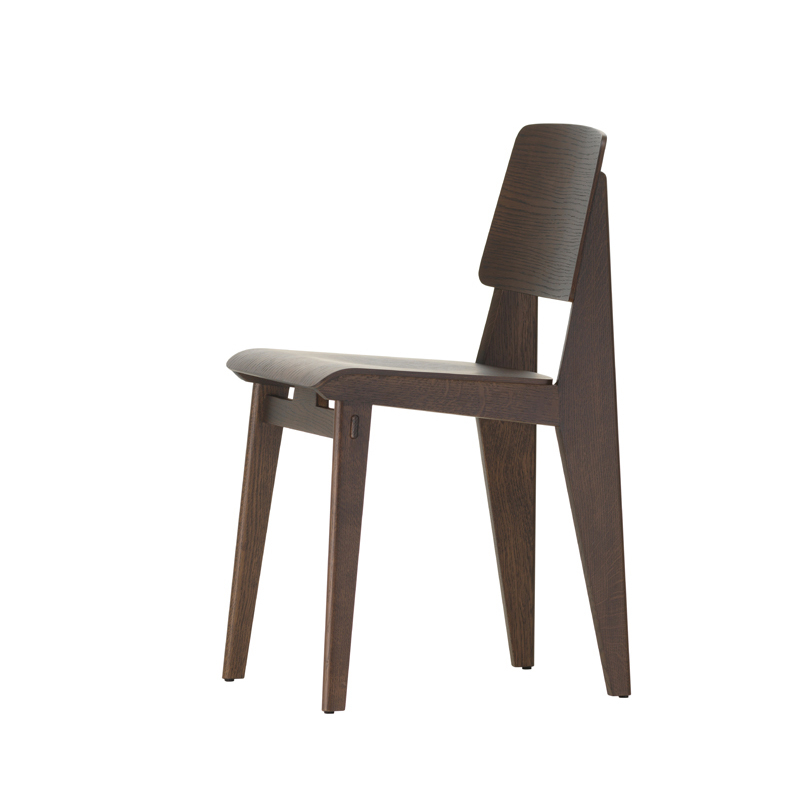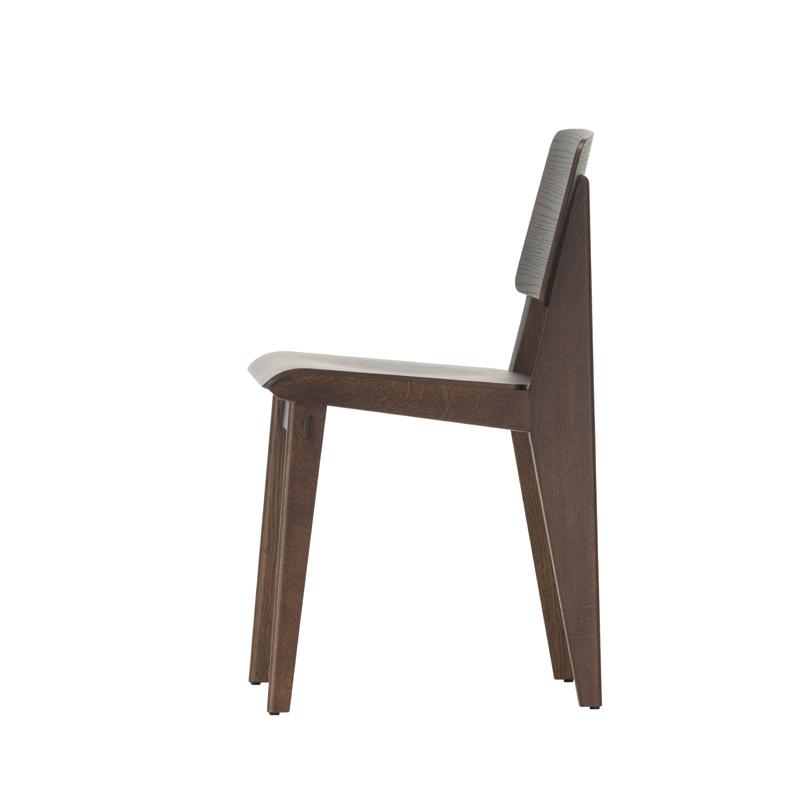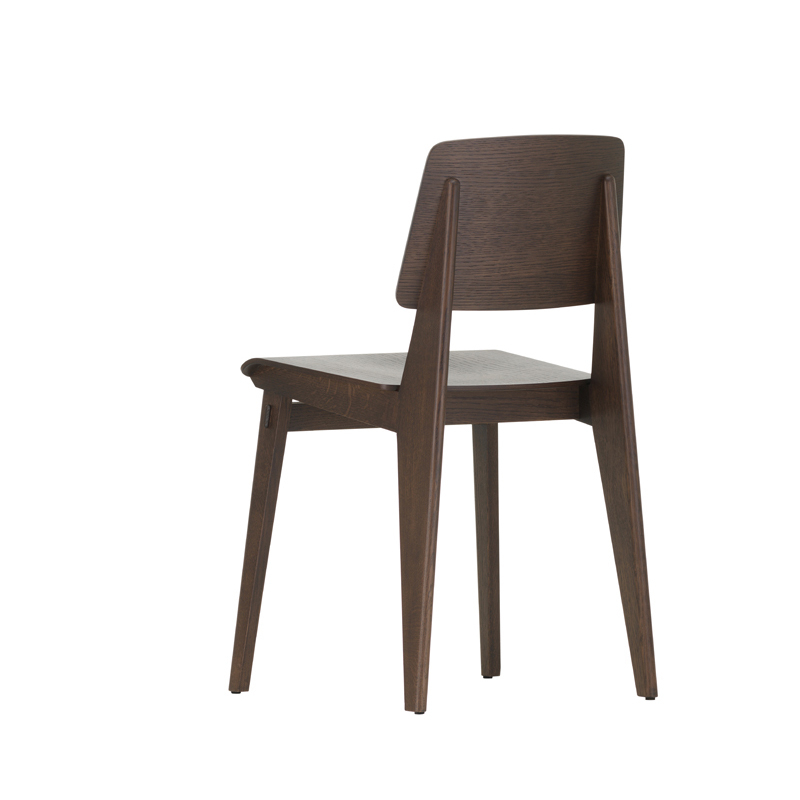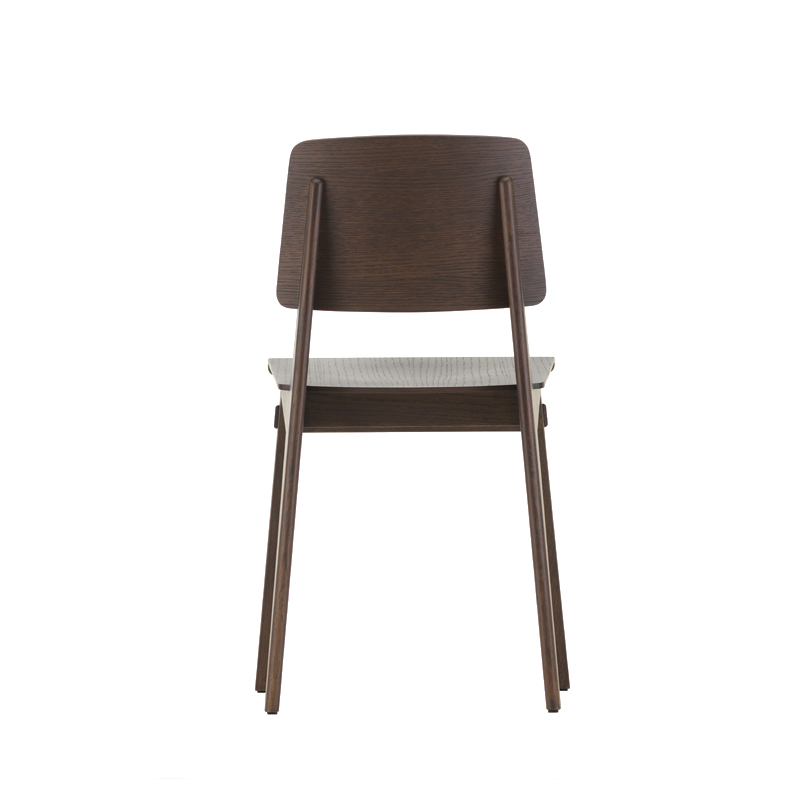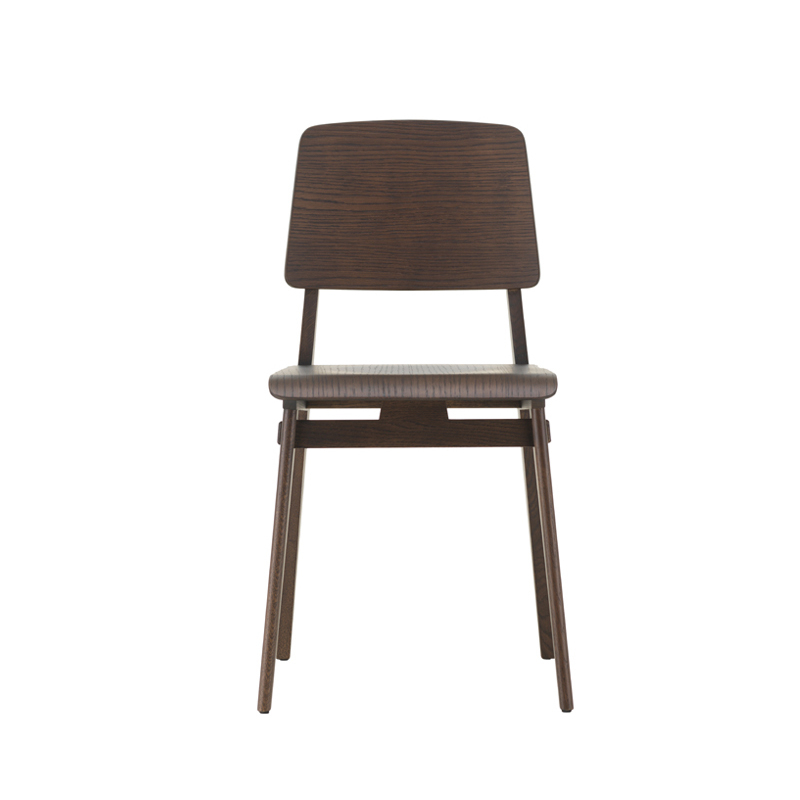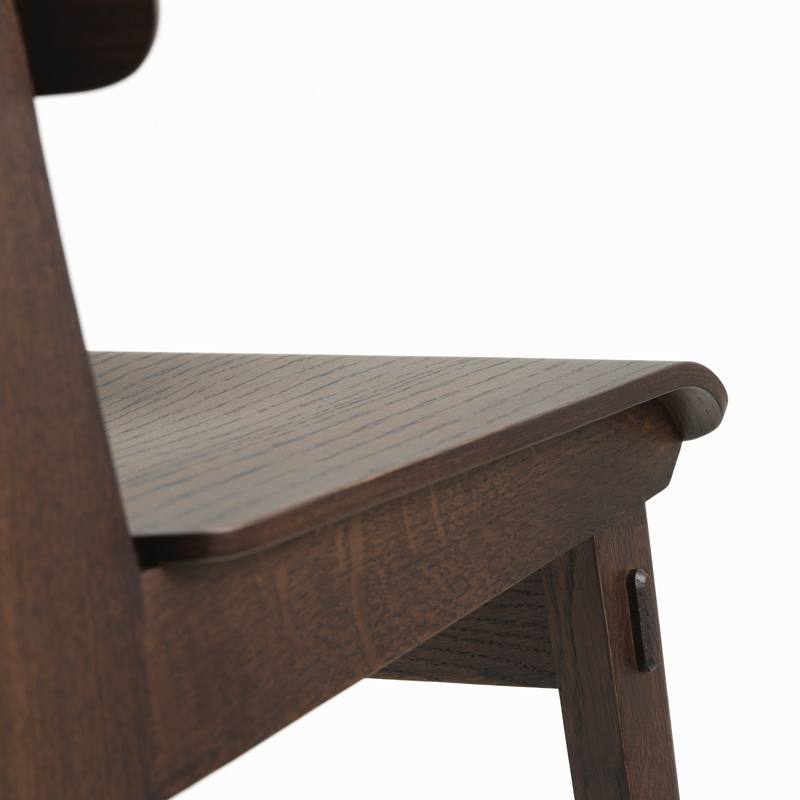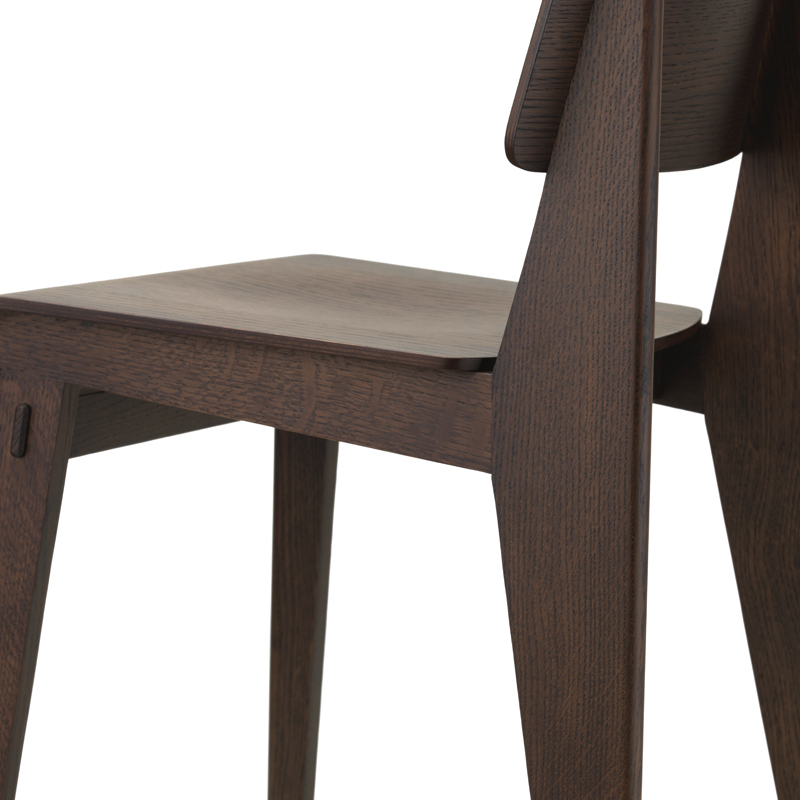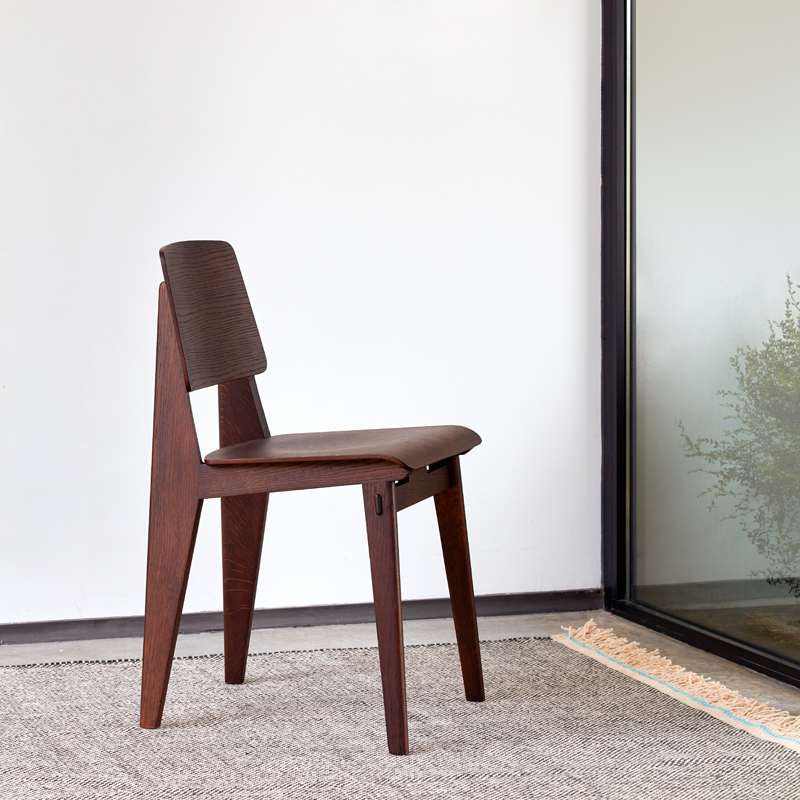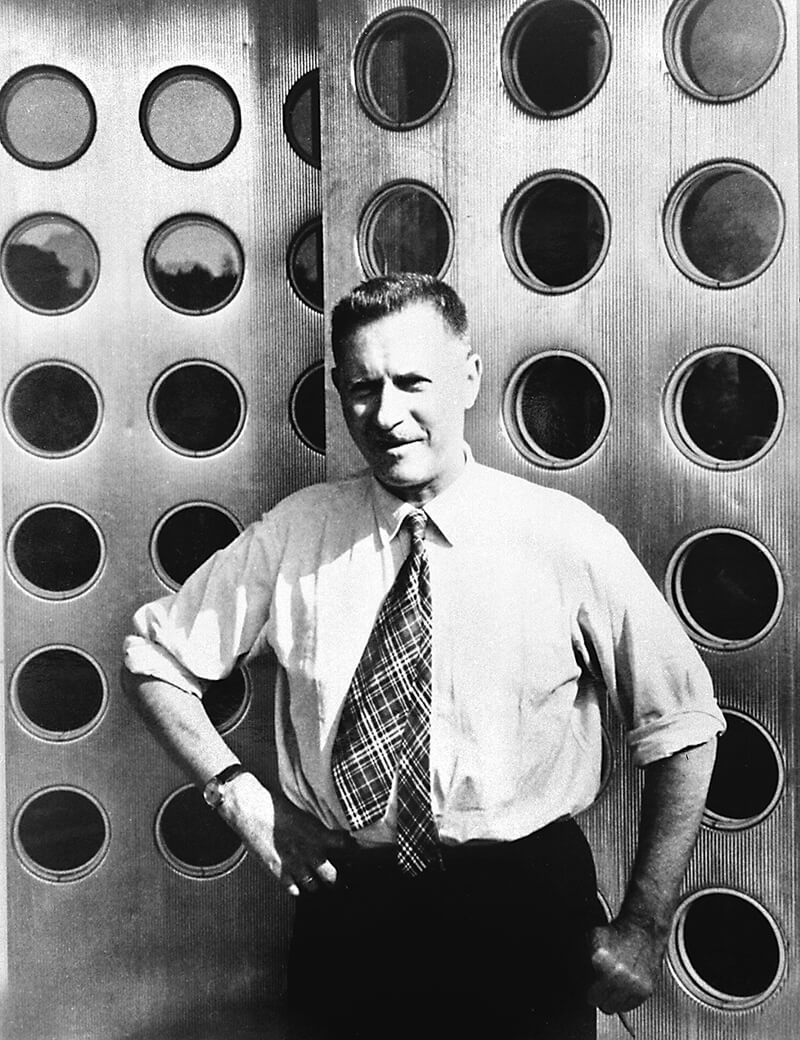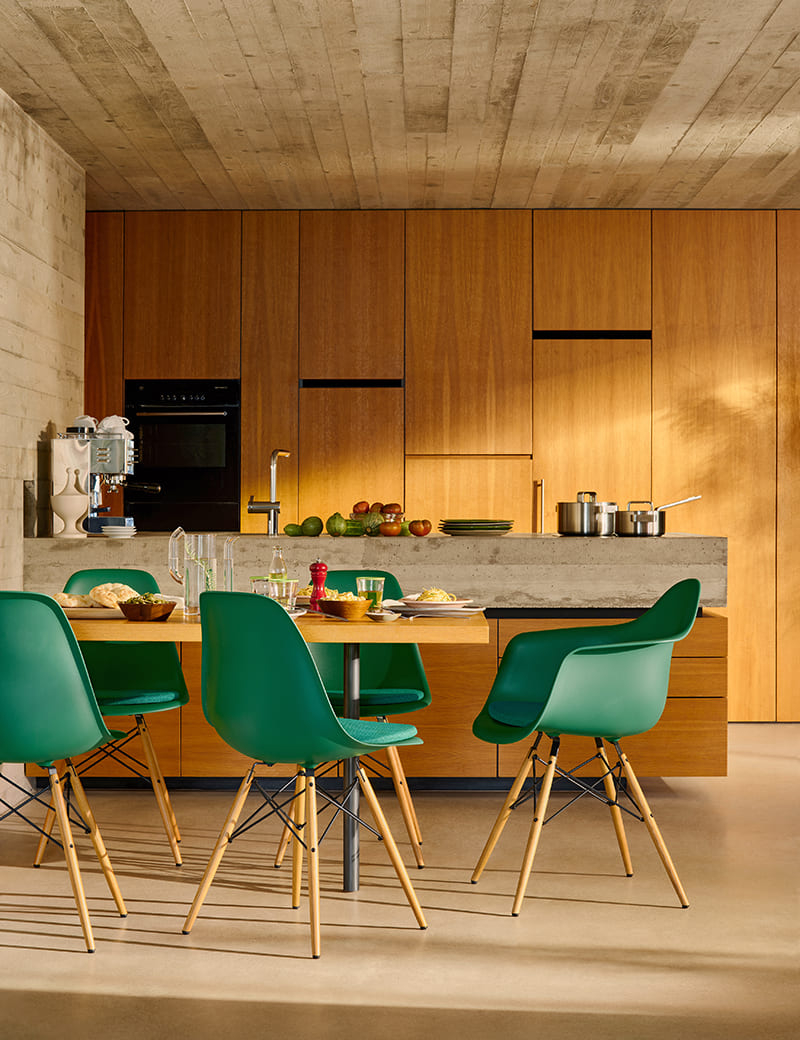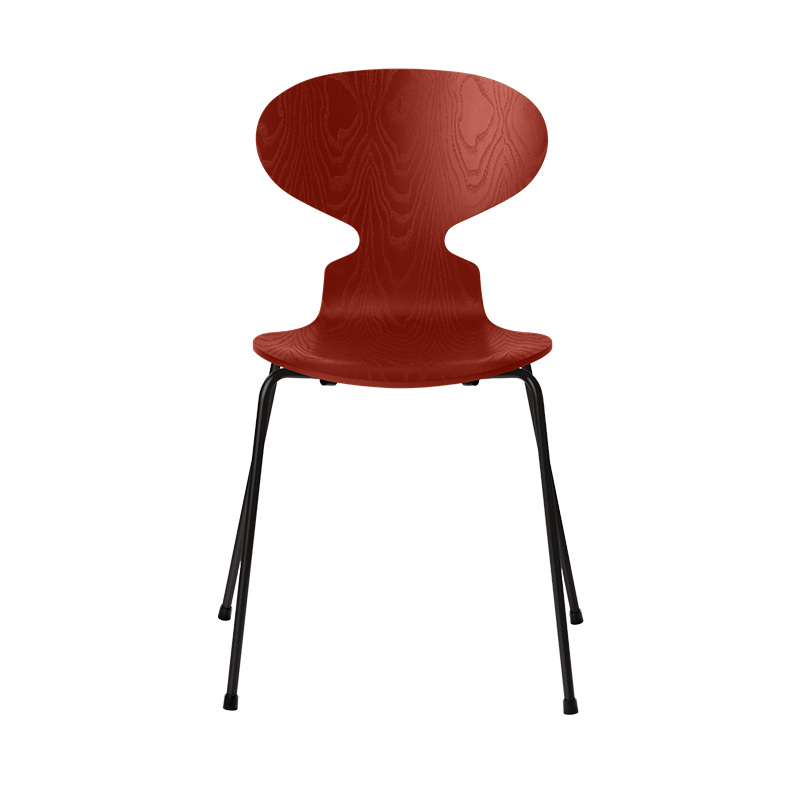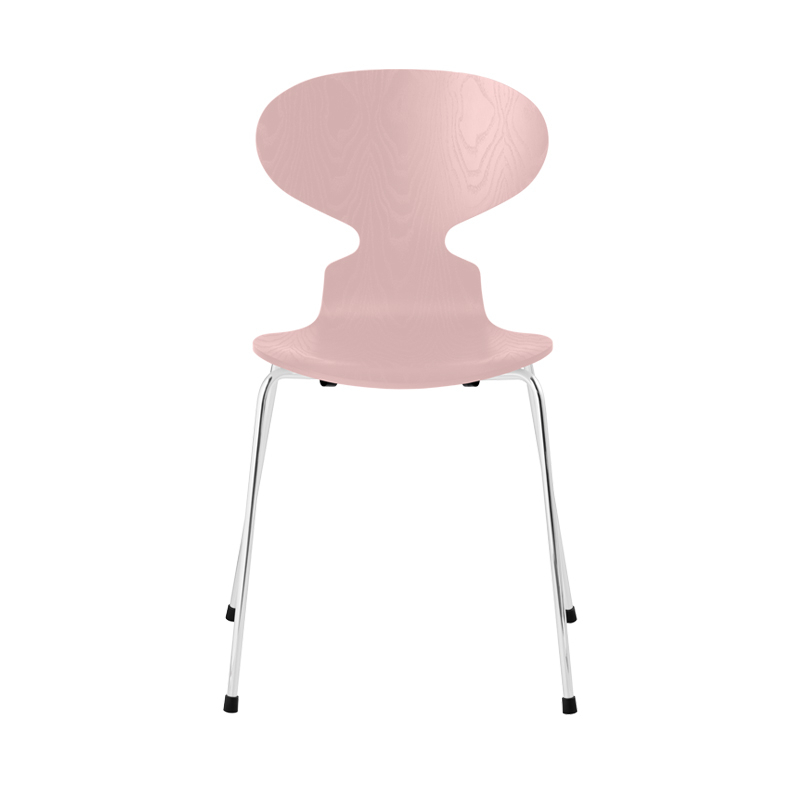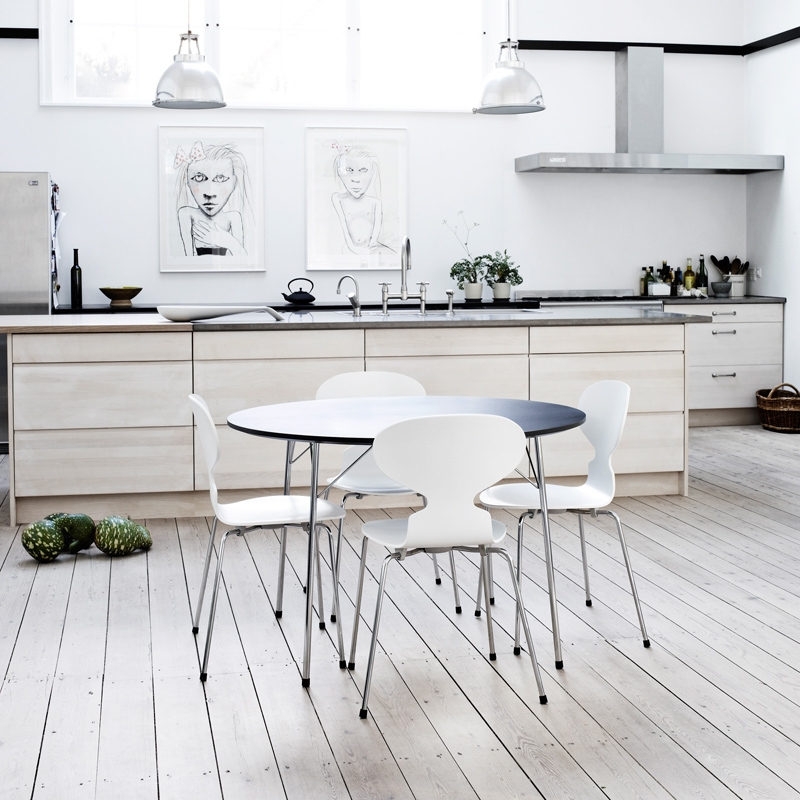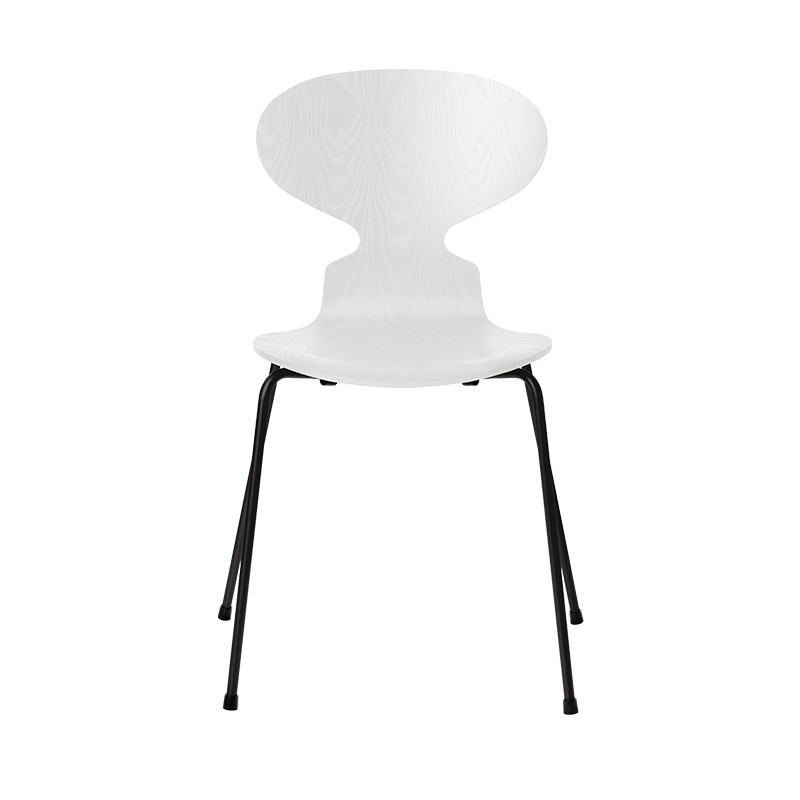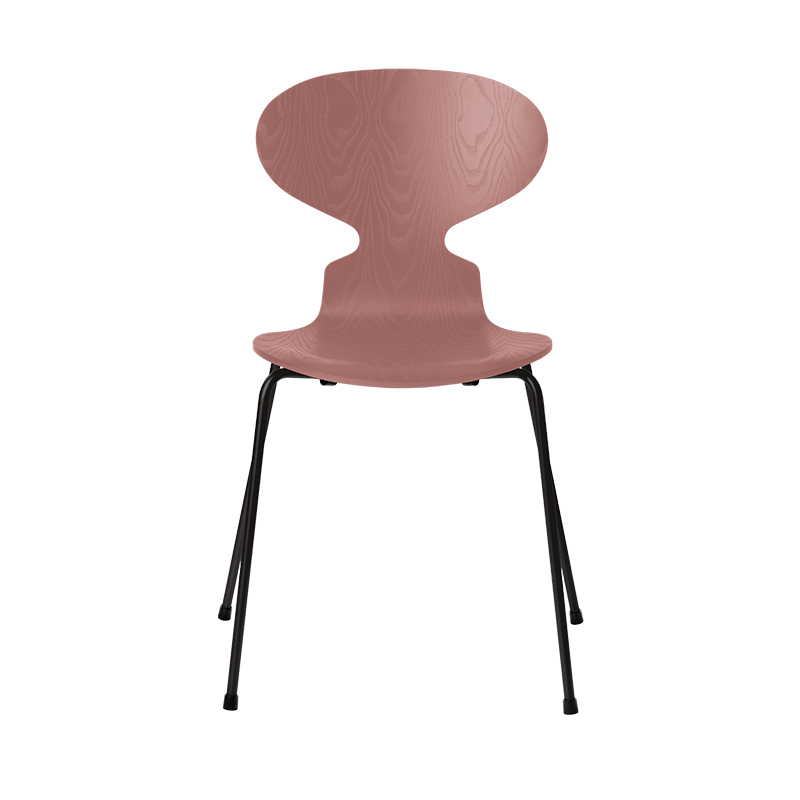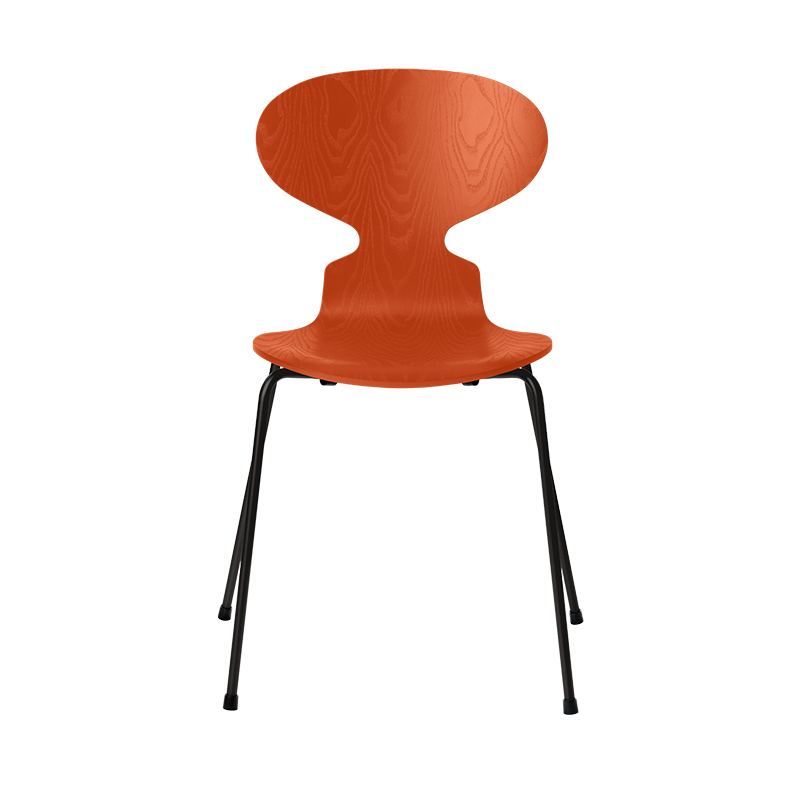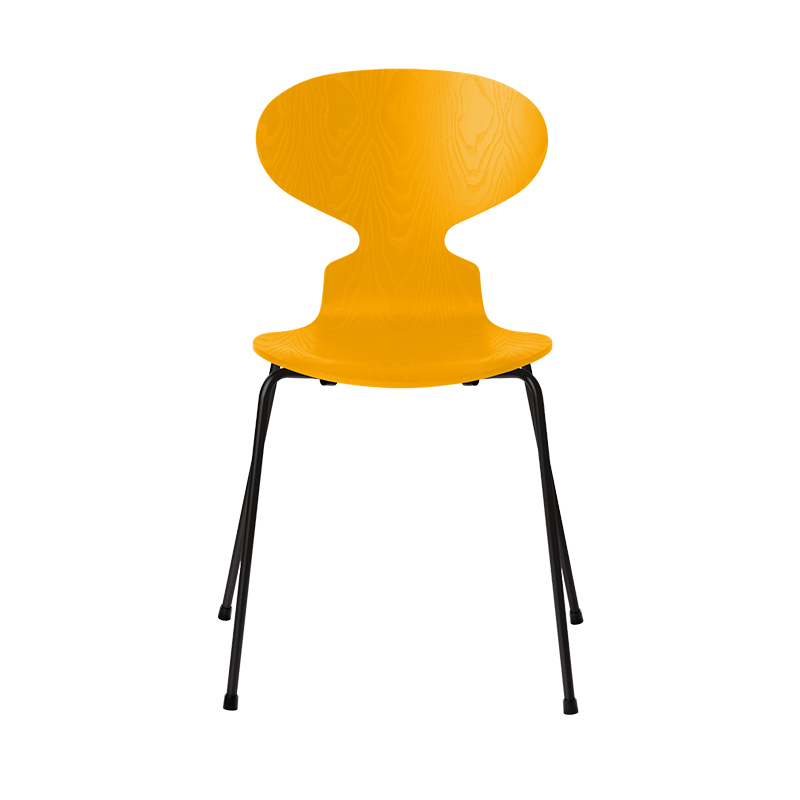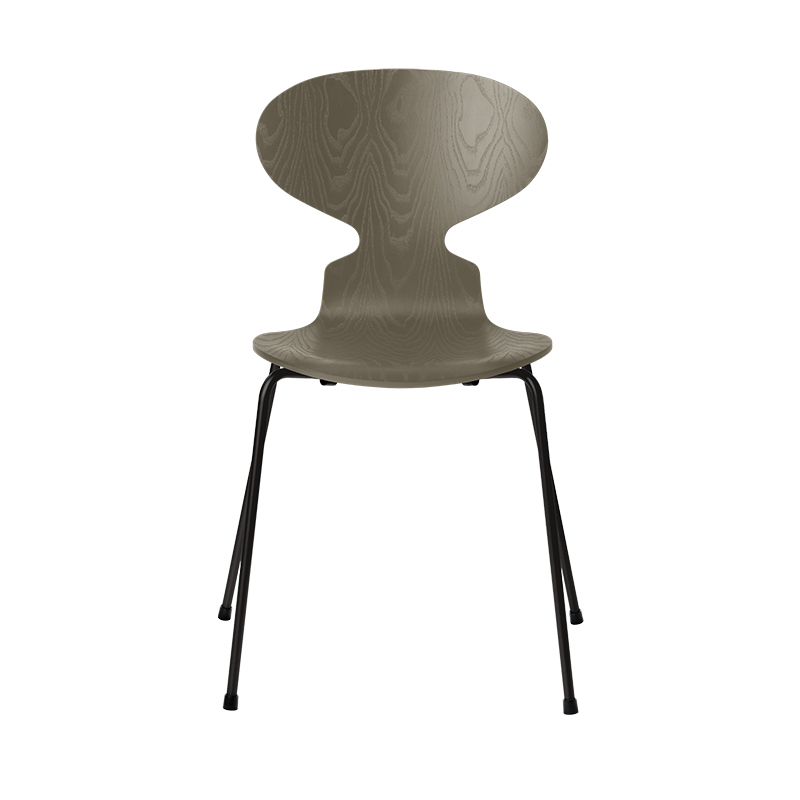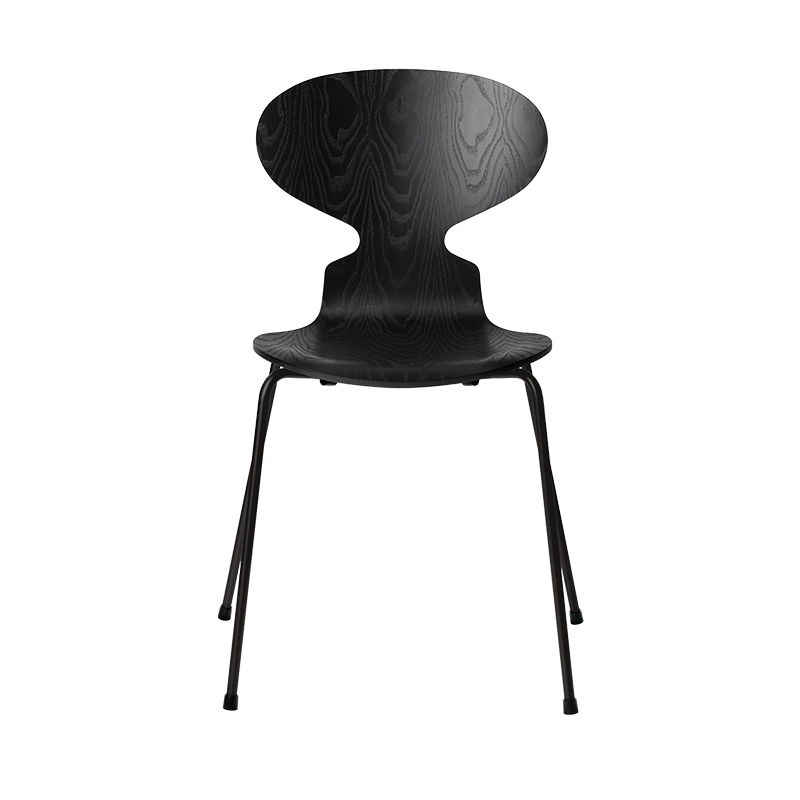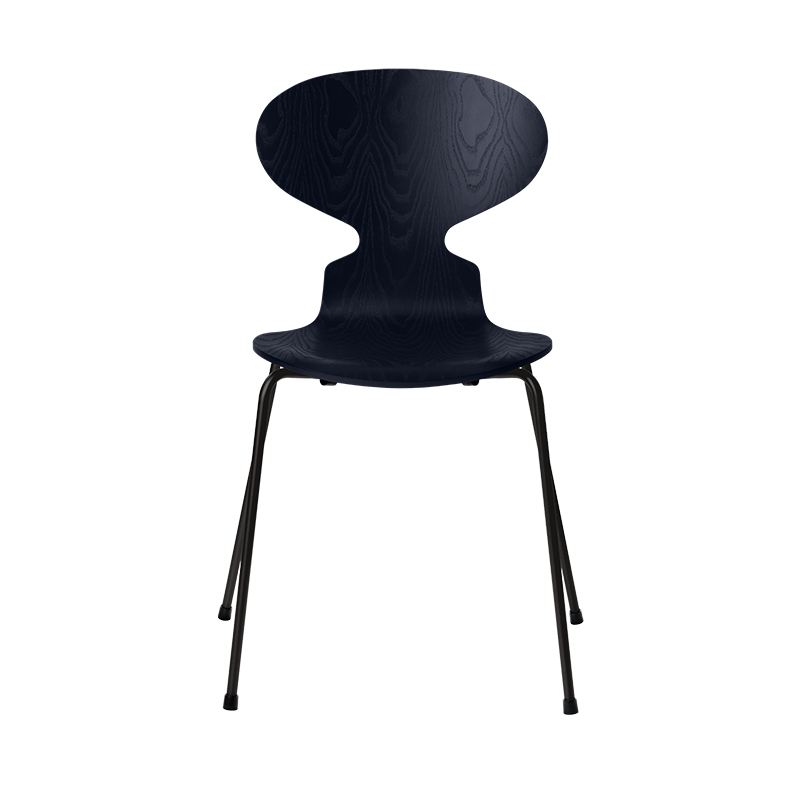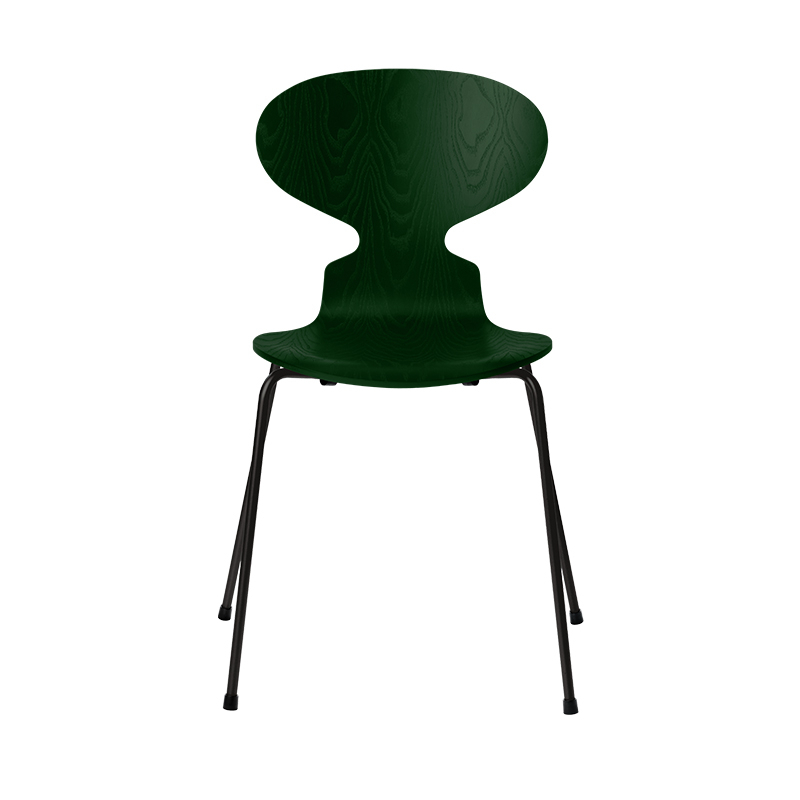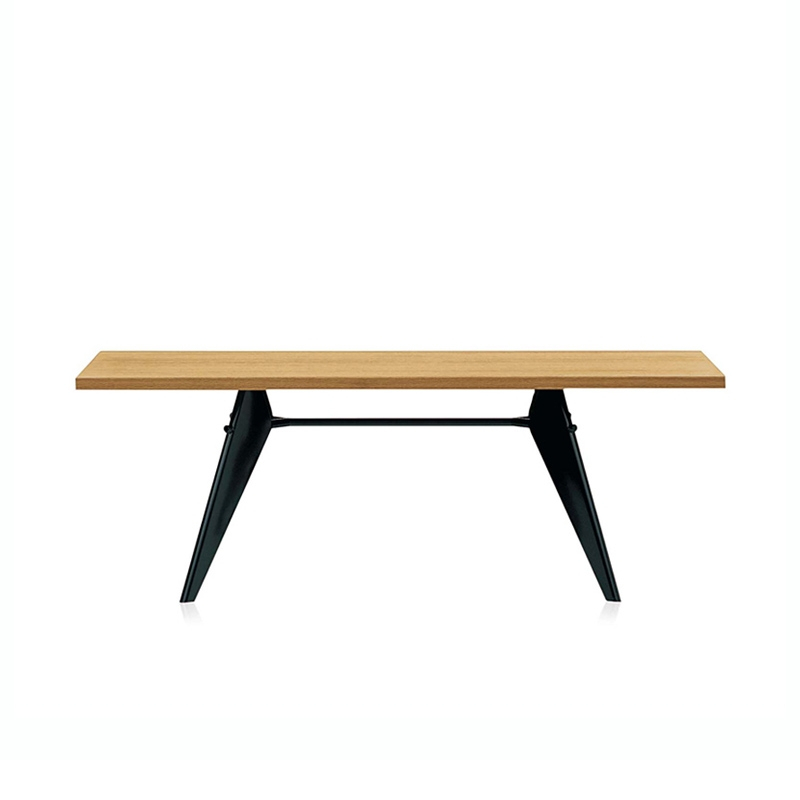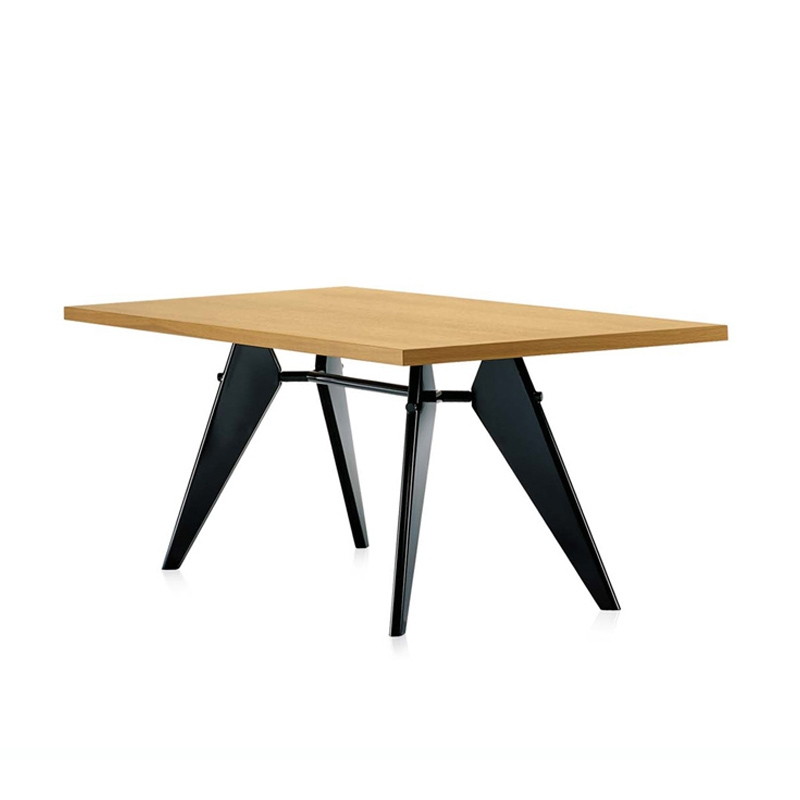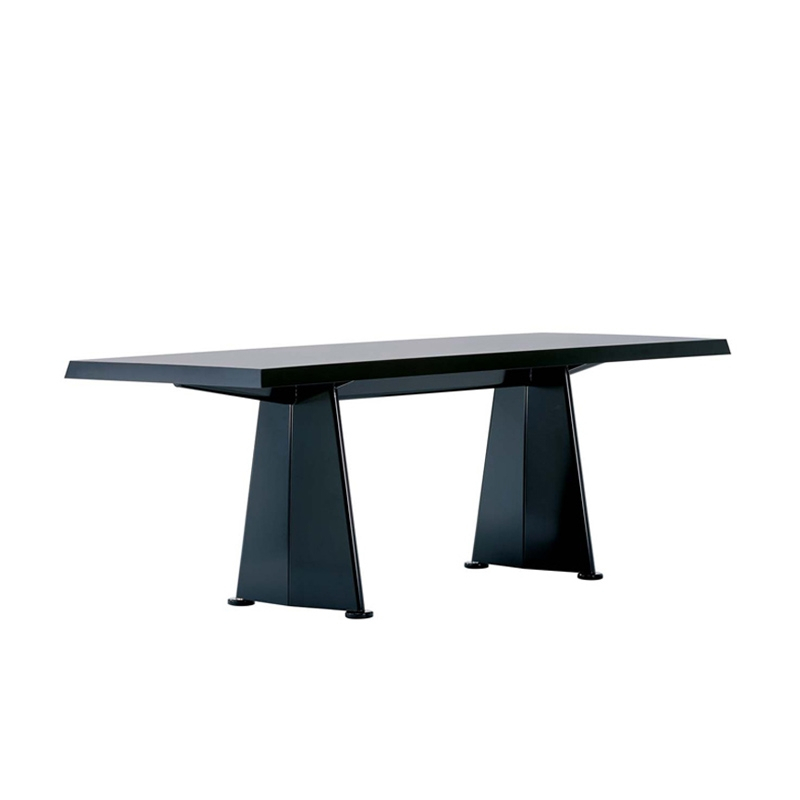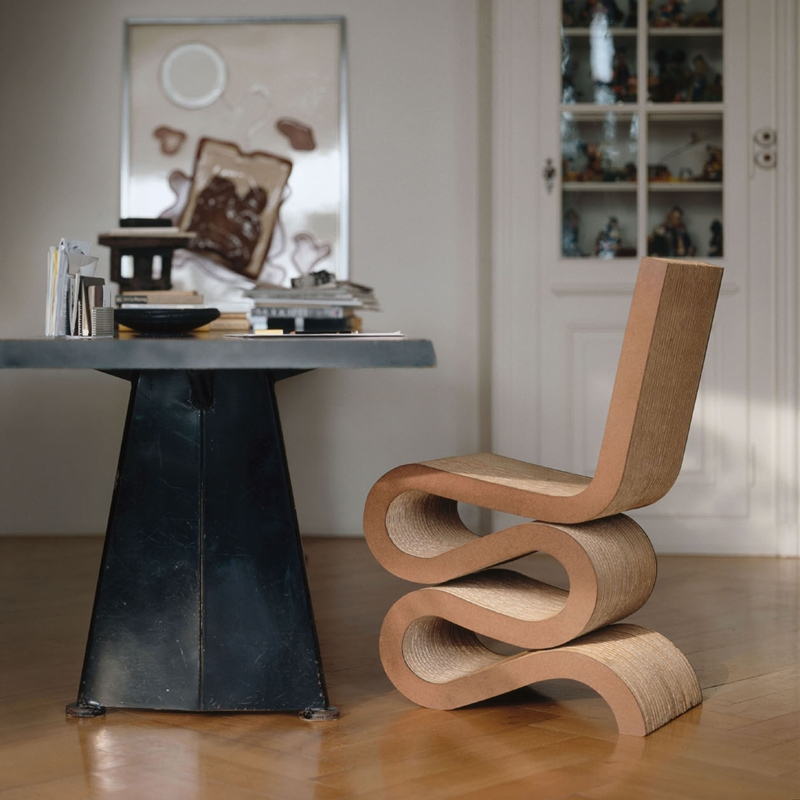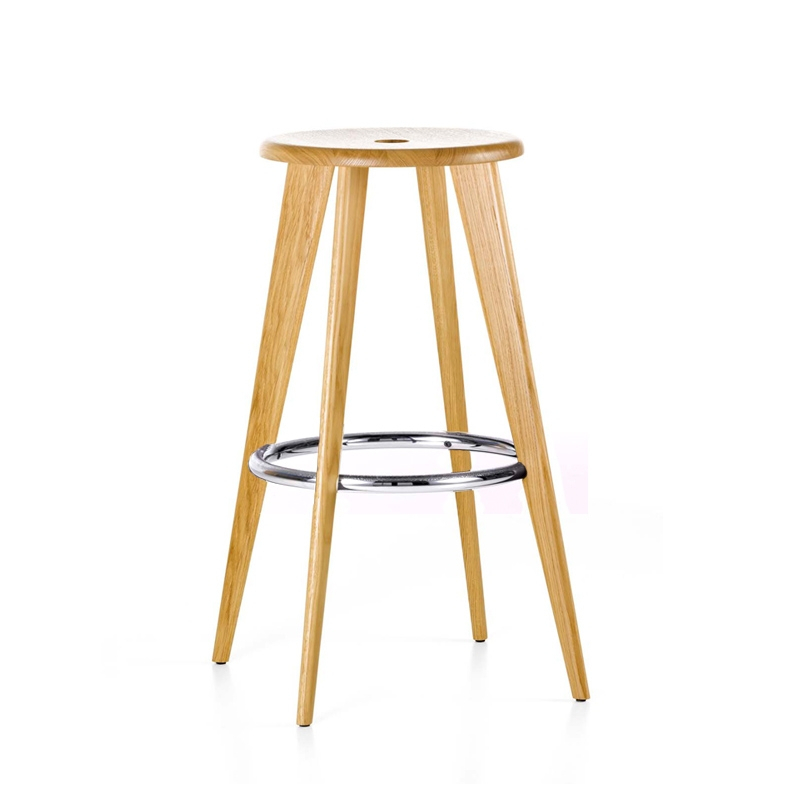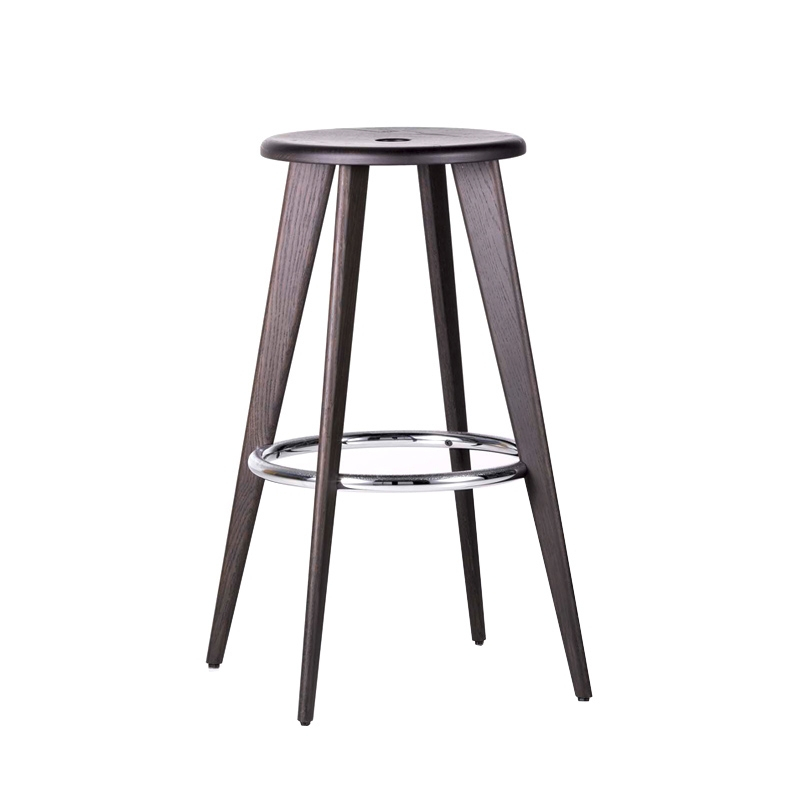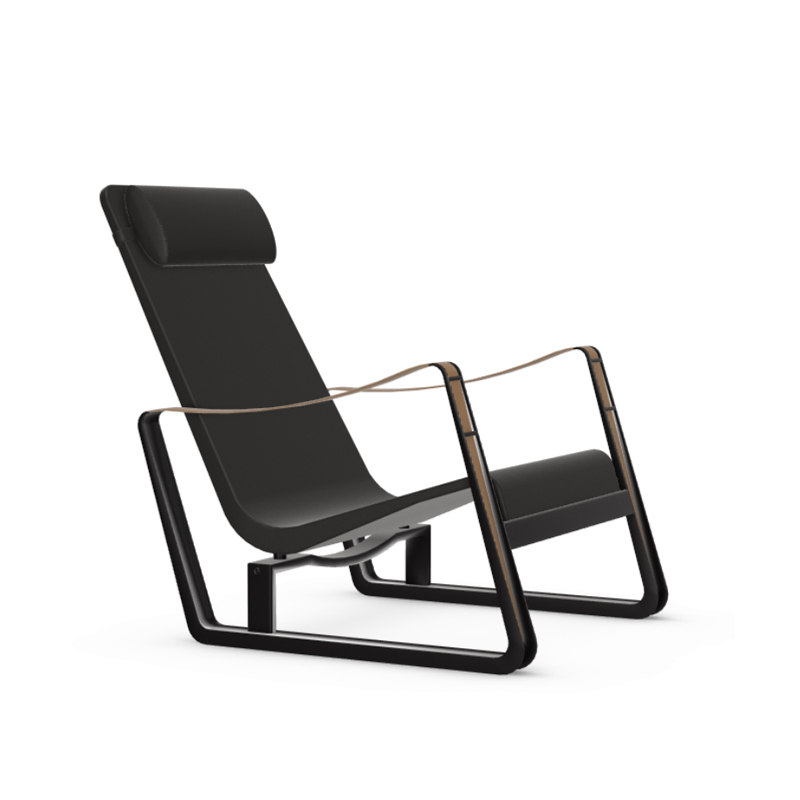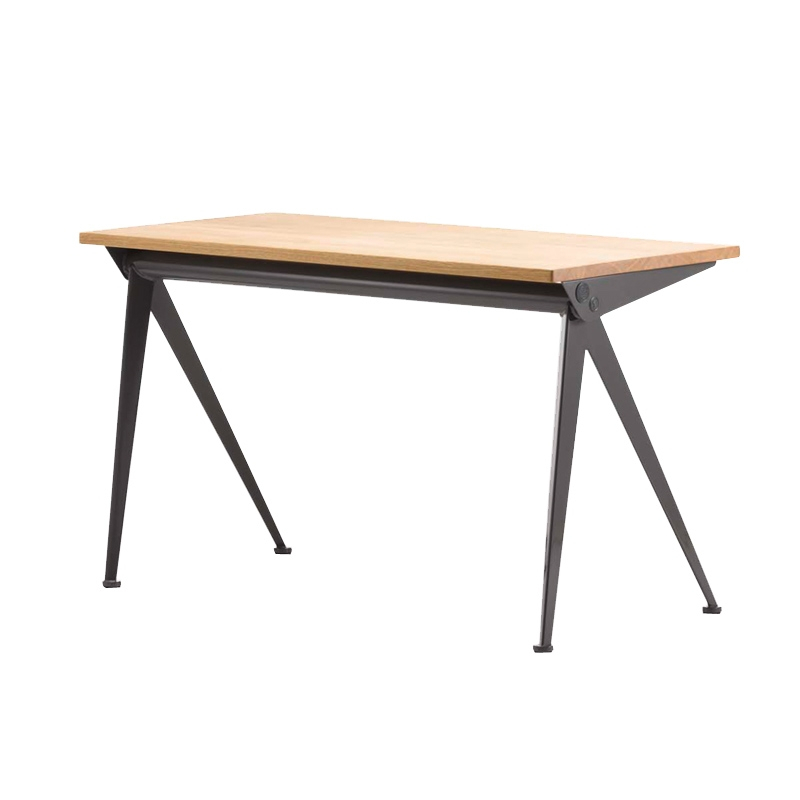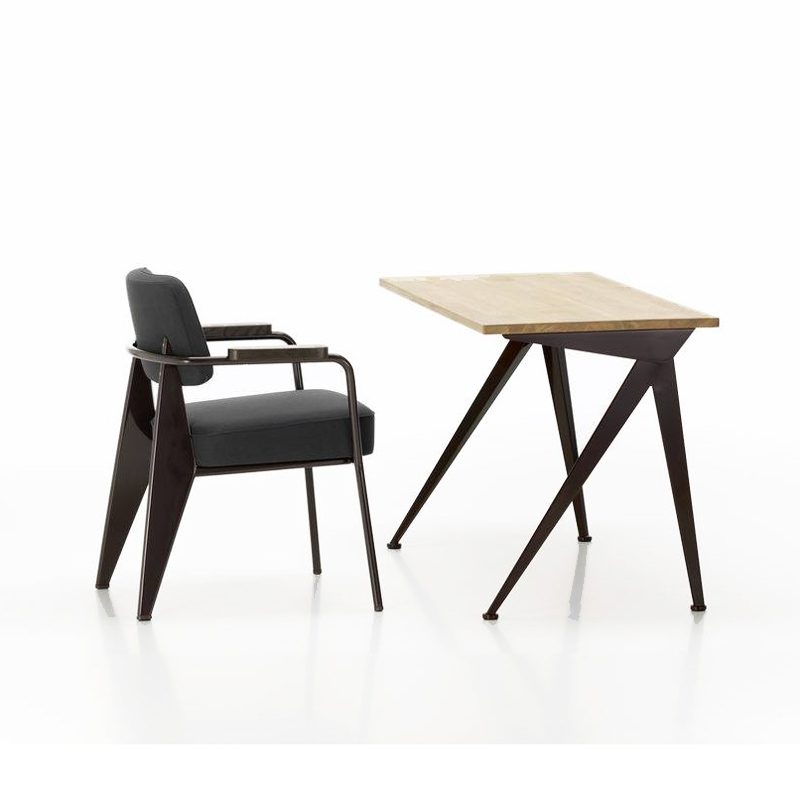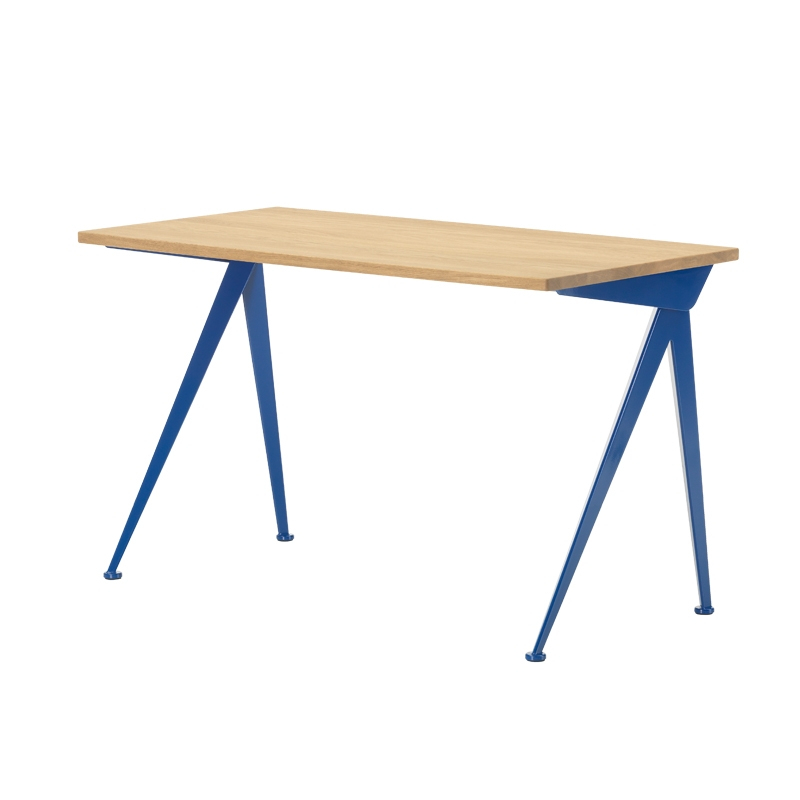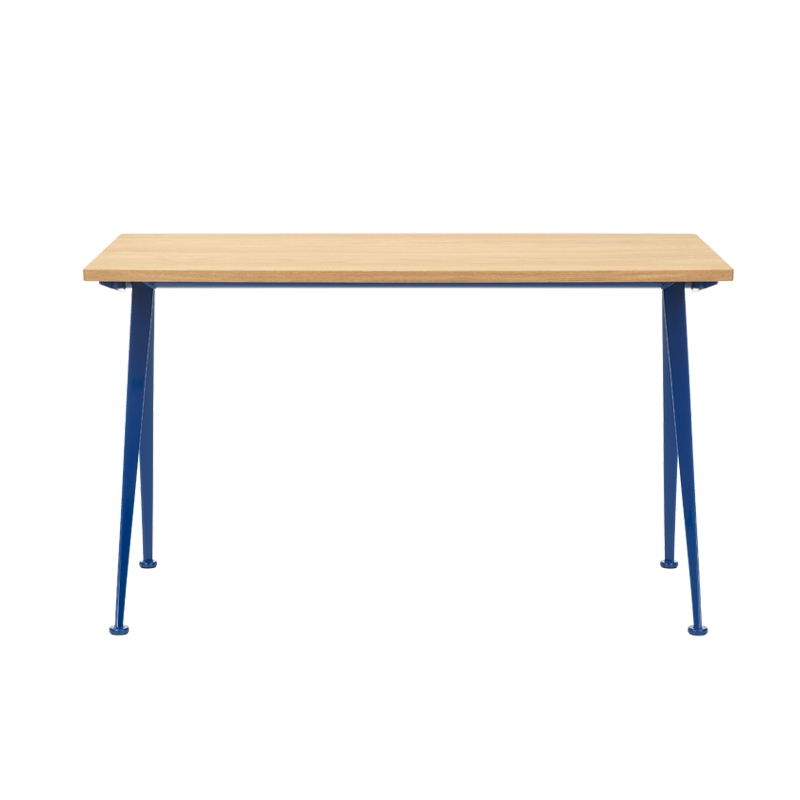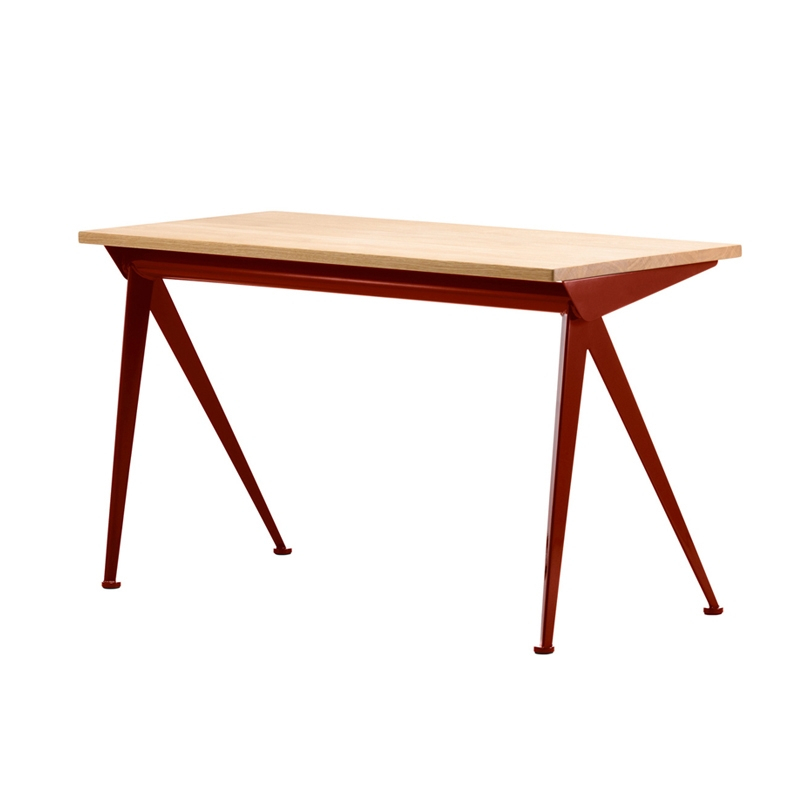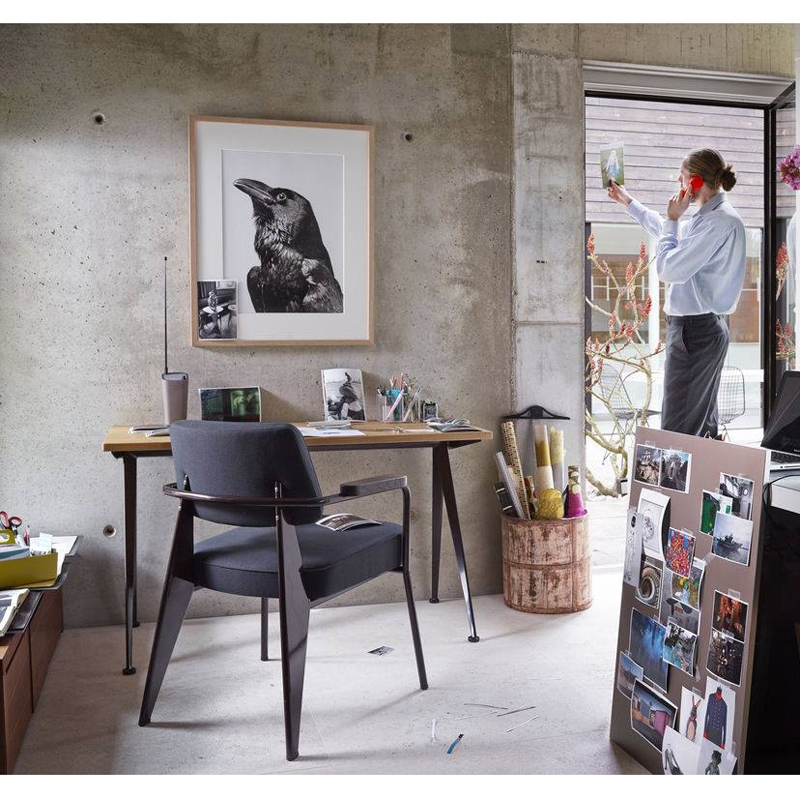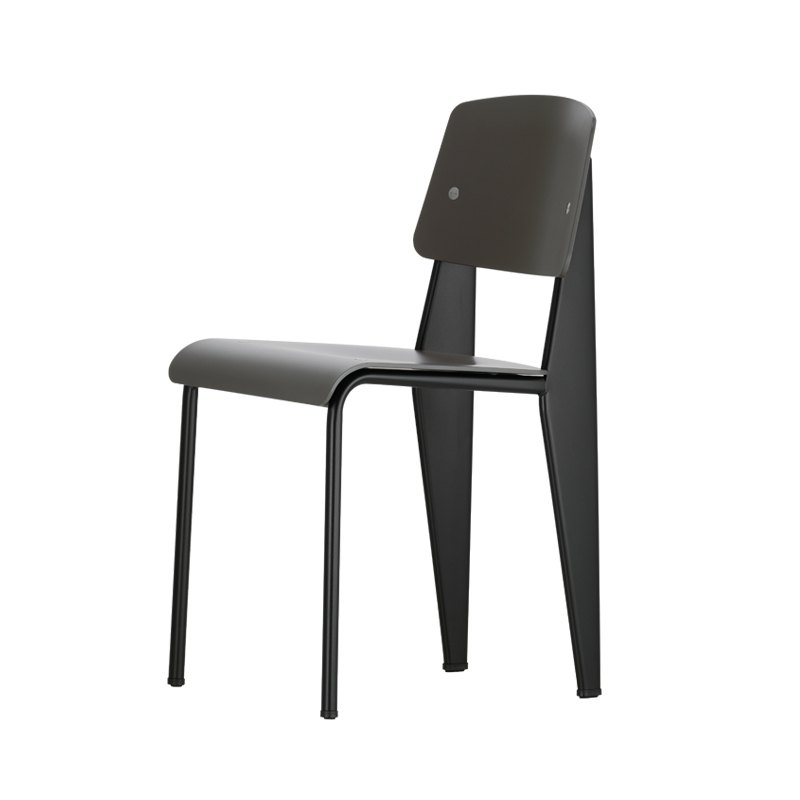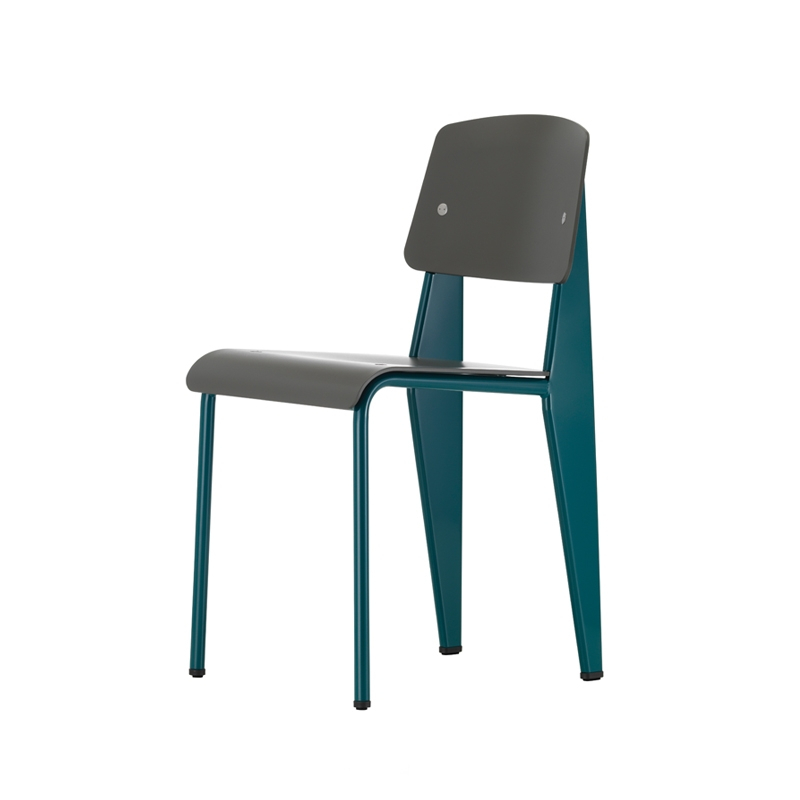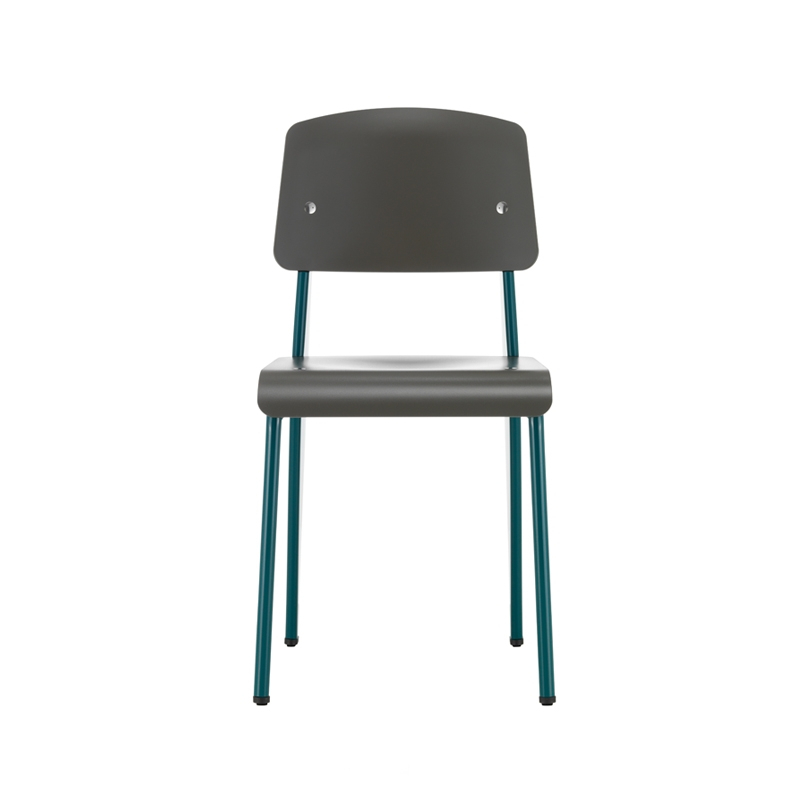- wishlist
-
Cart
Your cart is empty.
menu overlay
menu overlay
Already a customer?
New customer?
Enjoy all the benefits we offer and track your purchases in the order history.
Registermenu overlay
Reset my password
You will receive a link by email to reset your password.
Dining Chair ALL WOOD CHAIR Dark oak VITRA
€865.00
€720.83 HT
or in

ALL WOOD CHAIR Dark oak
ALL WOOD CHAIR Dark oak
€865.00
€720.83 HT
€865.00
€720.83 HT
Description
Reissued by Vitra, the Chaise Tout Bois is the only chair by French builder and designer Jean Prouvé made entirely from wood. In shape, it is very similar to Prouvé's famous Standard chair, but the metal base was replaced by wood due to the scarcity of metal during the Second World War. Through its form, the Chaise Tout Bois expresses Prouvé's intention to provide additional strength at the transition between the seat and the backrest, where the load is greatest. During the war, Prouvé created several prototypes of this chair to test the strength of its structure as well as the joints, the position of the legs and the connection between the seat and the back. The chosen material was based on availability at the time. After the war, oak was again available in sufficient quantity and was an ideal material for a wooden chair, due to its strength and durability. In 1947, Prouvé's Chaise Tout Bois won the "Meubles de France" competition. The concept of the competition was to find attractive, high-quality furniture and mass-produced products to meet the needs of the post-war society. The Chaise Tout Bois edited by Vitra corresponds to one of the variants of Jean Prouvé's 1941 creation, whose construction requires no screws. The height and geometry of the seat are the same as those of the Standard chair and therefore meet current standards and requirements. The warm appearance and feel of the wood offer an interesting contrast with the practical structural design, typical of the Prouvé functional approach.
Color
Chêne foncé
Colour
dark wood
Material
wood
Dimensions
w 46 x D 49 x H 80.5 cm, seat H 46 cm
Finish
croatian solid oak, US veneer, protective varnish
Notice
- Home
- ▸
- Dining Chair
- ▸
- ALL WOOD CHAIR Dark oak
What you think of it
Delivery Terms
Delivery possible within 48 hours for in-stock products.
You will also like
By the same designer
menu overlay
Quote request
You will receive a response from us within 24/48 hours
Your contact details
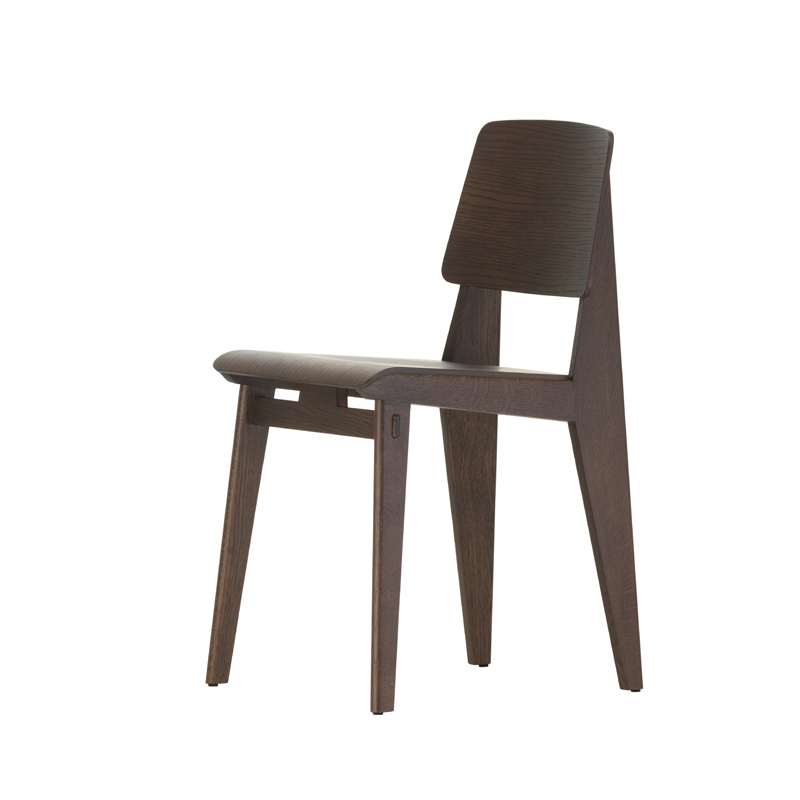
Dining Chair
ALL WOOD CHAIR Dark oak
VITRA
Color :
Chêne foncé
€865.00 TTC
€865.00 HT
In stock
In stock
€865.00 TTC
€865.00 HT
Total items :
€865.00
Taxes
0 €
Total (VAT incl.)
€865.00


